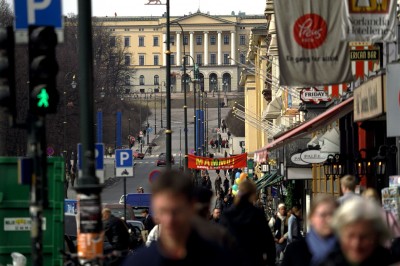Complaints about alleged illegal monitoring by Norwegian intelligence services doubled from 21 in 2001 to more than 40 in 2013. The focus has increasingly shifted to immigrant communities with ties to Islam, leading to concerns such surveillance could hinder their integration and have broader impacts on democratic rights.

On Monday the Parliamentary Intelligence Oversight Committee (EOS-utvalget) released its annual report for 2013, containing more than 40 claims of illegal surveillance. Newspaper Dagsavisen reported the figure has increased from 29 complaints in 2012, and 21 in 2011. The committee oversees the military intelligence service (Etteretningstjenesten, NIS), the police security service (Politiets sikkerhetstjeneste, PST), the national security authority (Nasjonal sikkerhetsmyndighet, NSM) and the defence security department (Forsvarets sikkerhetsavdeling, FSA)
Former Supreme Court judge Ketil Lund was in charge of parliamentary scrutiny of the secret services in the 90s. He told Dagsavisen the focus and political marginalization had shifted from the extreme left wing. “Today it’s far bigger groups, not least immigrant communities with connections to Islam,” said Lund. “They feel suspicion, which is more or less justified. Monitoring can have big consequences for the integration of immigrant people, and is therefore a significantly greater democratic problem than previously.”
Both the NIS and PST‘s annual terror threat reports released earlier this year warned the threat of an attack continues to rise, particularly mentioning increased radicalization of Norwegian Muslims. The services said dozens have traveled to fight in the Syrian civil war, becoming even more radicalized. The services’ eyes are also turning north, monitoring increased Russian defence spending and Arctic mobilization.
Lund said a variety of groups in society with differing opinions was essential to democracy. “People who feel suspicion are deprived of the opportunity to the trust which is fundamental for integration,” he said. “Obviously that cools the interest in participating in public conversations.”
Greater transparency
The leader of the Parliamentary Justice Committee, the Labour Party’s (Arbeiderpartiet, Ap) Hadia Tajik told Dagsavisen no group should be subjected to suspicion without just grounds, and the secret services weren’t allowed to monitor people or organizations purely on the basis of religious or political affiliation.
“Jørn Holme was the first head of PST who actively sought out religious groups and answered questions from young Muslims,” she said. “His initiative helped increase confidence in the police and PST’s work against extremism. I think both they and the trust in the community benefits from this type of transparency.” She was concerned by the EOS committee’s findings that in some cases, the PST hadn’t followed the demands of necessity and relevance in registering new people.
Parliament’s powers
The debate has moved to whether the EOS committee should have more powers to investigate the intelligence services. The committee head, Eldbjørg Løwer, was among those who limited how much access the EOS committee should have when she was the Liberal (Venstre) defence minister in 1999.
“The creation of the EOS committee in 1995 was the first time in history that the NIS was subject to democratic control,” said Løwer. “Through the following 17 years an understanding in the services gradually built up that it was important for them to be controlled if they are to have legitimacy and trust from the people and politicians. I see today that I should have done some things differently in 1999, but I will write that off with inexperience.”
Løwer said she followed the lead of the two former defence ministers, but with age could see she should have been more critical. She said it was impossible to say if the number of complaints was increasing because more groups were now being watched.
Lund told Dagsavisen he doubted parliament could gain effective control over the secret services’ operations. He said part of the problem stemmed from the different organizations’ refusal to collaborate. “Since a large part of the business is precisely connected to cooperation and exchange of information with these services, in reality it means that the E-tjenesten is largely uncontrollable,” he said. “Therefore, the service would of course not to share information with the PST, because the EOS Committee in principle has unrestricted access to their business.”
newsinenglish.no/Emily Woodgate

